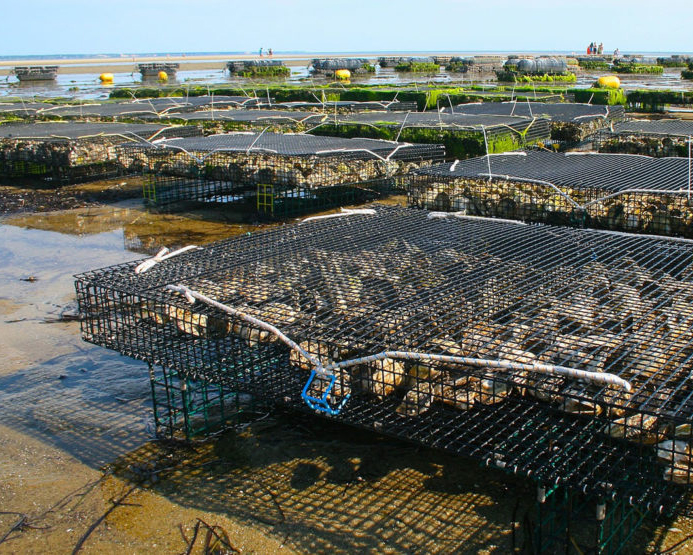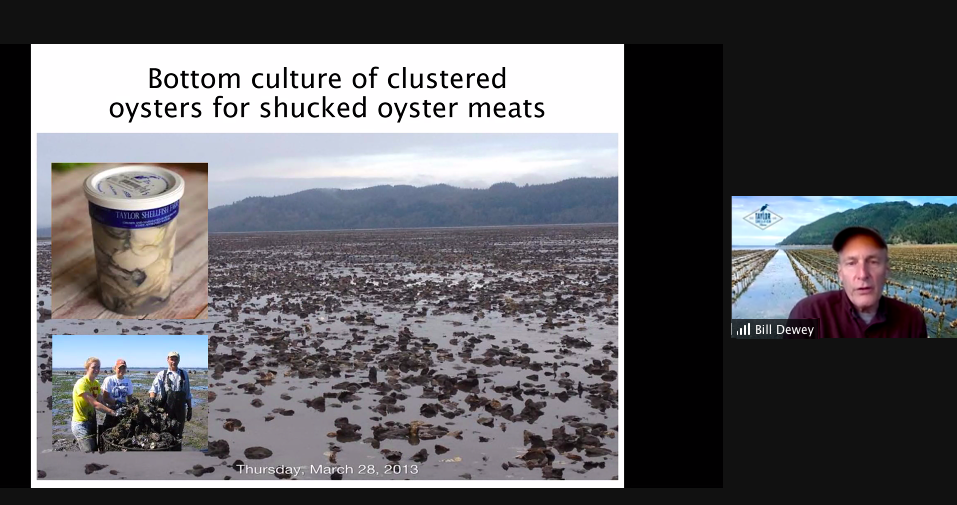
Shellfish are a culturally significant resource for coastal Native people and the foundation of an iconic Pacific Northwest industry that employs thousands. But shellfish are also extremely susceptible to climate change. Because of their cultural, economic, and ecological importance, shellfish reflect the multifaceted impact of climate change on Washington’s communities. EarthGen’s workshops help teachers understand and share the lessons of shellfish and climate with their students.
Serving Shellfish and Climate
EarthGen developed workshops that introduce teachers to the impact of climate change on shellfish and other important species in the Pacific Northwest. At the “Shellfish and Climate Change” workshop, Dr. Kat Huybers, a climate scientist from the University of Washington, discussed climate change indicators that are significant in the coastal Pacific Northwest region. Bill Dewey from Taylor Shellfish and Kathleen Nisbet Moncy from Goose Point Oysters shared how the shellfish industry is responding to the challenges of climate change. Some of their farms have had to relocate away from the warming and acidifying waters in the Pacific Northwest. Through engaging in activities and listening to interdisciplinary groups of experts, teachers gained knowledge of the complexity of these environmental issues and explored potential solutions.
“When the tide is out, the table is set.”
larry campbell, swinomish indian tribal community
Tribal leaders provided an important cultural perspective. Paul Williams, representing the Suquamish Tribe, and Larry Campbell from the Swinomish Tribe, described how climate impacts on shellfish are affecting their communities. Campbell shared the saying, “When the tide is out, the table is set,” and spoke of the spiritual importance of shellfish to Native nations. Unlike commercial fisheries, tribes cannot relocate their heritage to cooler waters. They have no choice but to adapt and mitigate climate change because they need the shellfish for their cultural wellbeing.
Cracking the Shell
Now available to English-language learners in summer programs across the state, EarthGen’s science units have improved each year to better meet the needs of Washington’s diverse communities. Breathing Easier, an EarthGen program that introduces upper elementary school students to air quality issues and environmental justice, is being used by migrant students as well. Whether at home or learning
Learning from experts with social, economic, and environmental perspectives, teachers saw how the shellfish industry depends on a healthy environment. They also learned about efforts that are being made to protect shellfish in Washington. Teachers left the training with a deeper understanding of the complex relationships among climate, shellfish, and local communities.
They also gained a new tool for making environmental science engaging and relevant to their own students. It is not always obvious to young people how the principles they study in science class impact people outside of the classroom. Nor is it easy for them to see how they have a role in tackling big issues like climate change.
“I think it is so valuable to connect science issues with a real-life event or person. This helps make the science REAL. Additionally, it shows a complete picture of different stakeholders and how to affect policy,” said Puyallup School District teacher Melissa Ashton, after attending the training.

A Fresh Future
Now the teachers are taking the shellfish case study back to their own classrooms, inspired to spark their students’ interest, spur environmental action, and potentially, replicate this approach with other local species. For Eastern Washington teachers, EarthGen features the sharp-tailed grouse as a locally important species impacted by a changing climate.